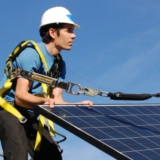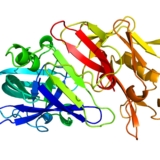A dive into the sociological, operational, and tactical realities of this murky underworld, Lusthaus and de la Garza discuss who the players are, what they are ...
Dr. Marty Makary—surgical oncologist at Johns Hopkins University School of Medicine, and health policy and innovation expert—has long been a passionate ...
More than 98% of the information on the web is lost within 20 years, and huge gaps exist in our digital and cultural history. Zoran Basich and Alex Pruden of ...
In part 1 of our series on human performance, we looked at the limits of human potential in climbing and other sports – and how we push those limits through ...
Is there a limit to what humans can do? And if so, how do you know when you’ve reached it? Welcome to part one of a two-part series on human performance ...
“Why We Shouldn’t Fear the ‘Black Box’ of AI (in Healthcare and Everywhere)” by Vijay Pande. First published in the New York Times, January 2018. ...
“When One App Rules Them All: The Case of WeChat and Mobile in China” by Connie Chan. First published August 2015. You can also find and share ...
“Why Every Company Will Be a Fintech Company — The Next Era of Financial Services and the ‘AWS Phase’ for Fintech” by Angela ...
Today we’re continuing a series we started a while ago of read-alouds (for more context on the why and why now check out episode #500 on how we ...
Eroom’s Law is Moore’s Law spelled backwards. It’s a term that was coined in a Nature Reviews Drug Discovery article by researchers at Sanford Bernstein and ...
The COVID-19 pandemic has increased the visibility of scientists and the scientific process to the broader public; suddenly, scientists working on virology and ...
In this episode of the a16z bio journal club, we cover one of the key clinical trials that supported the recent FDA approval of the first prescription video ...
Gross margins are essentially a company’s revenue from products and services minus the costs to deliver those products and services to customers, and ...
Gross margins are essentially a company’s revenue from products and services minus the costs to deliver those products and services to customers, and ...
As more digital natives have entered the workplace, they have brought with them the expectation that their software should both be a joy to use and allow them ...
As more digital natives have entered the workplace, they have brought with them the expectation that their software should both be a joy to use and allow them ...
In this episode of the a16z bio Journal Club, bio deal team partner Judy Savitskaya and Lauren Richardson discuss research that aims to enhance the efficiency ...
This episode is the second in a two-part series that examines the pandemic’s impact on real estate. Part 1 focused on prospective home buyers, sellers, and ...
This episode is the first in a two-part series that examines the pandemic’s impact on real estate. Part 1 focuses on prospective home buyers, sellers, and ...
Proteins are molecular machines that must first assemble themselves to function. But how does a protein, which is produced as a linear string of amino acids, ...
- « Previous Page
- 1
- …
- 21
- 22
- 23
- 24
- 25
- …
- 30
- Next Page »












